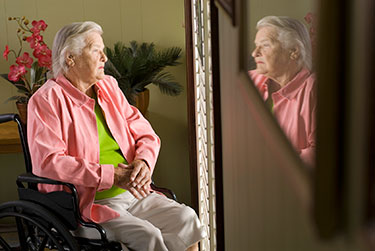Twenty-six percent of the U.S. population has some type of disability that is impairing. Yet many of the nation’s doctors say they do not feel confident about providing quality care to people with disabilities, a recent study finds.
Published in Health Affairs, the study found a general lack of understanding among doctors about how people with disabilities live. Even though half of people with disabilities say they have a good or excellent quality of life, many doctors perceive them as having limited happiness or lives.
Lisa Iezzoni, MD, MSc, a professor of medicine at Harvard Medical School and lead author of the study, said many physicians do not understand the full lives of people with disabilities, which can have implications for their health care.
For example, “they don't think people with disability are sexually active…and so they don't talk to them about contraception, even though women may be at risk of unintended pregnancy,” Iezzoni told The Nation’s Health.
Only about 41% percent of physicians said they were very confident about their ability to provide the same quality of care to patients with disabilities that they do to those without them. About 57% strongly agreed that they welcomed people with disabilities into their practices.
Researchers from Harvard University Medical School and Massachusetts General Hospital, who surveyed more than 700 doctors from a range of fields in 2019-2020, also found that more than 80% did not strongly agree that the health care system often treats people with disabilities unfairly.
People who have disabilities are at higher risk than the general population for a range of health issues, underscoring their need for adequate health care services. Almost 12% of people with disabilities have heart disease, compared to about 4% of those without disabilities. People with disabilities are also more likely to have obesity, diabetes or smoke tobacco.
They also face significant barriers to care. According the Centers for Disease Control and Prevention, a third of adults with disabilities under age 65 lack a usual health care provider, and a quarter have not had a routine checkup in the past year.
With disabilities more common in older adults and the U.S. senior population expected to double by 2050, “all physicians and health care providers can expect to see increasing volumes of patients with disability,” the researchers noted.
“All levels of medical education should include more training about disability, including disability cultural competence and etiquette,” the study authors wrote. “Training that provides greater empathy about patients’ daily lives, such as house calls, or standardized patients who have disability, might offer important insights.”
Photo by KLH49, courtesy iStockphoto